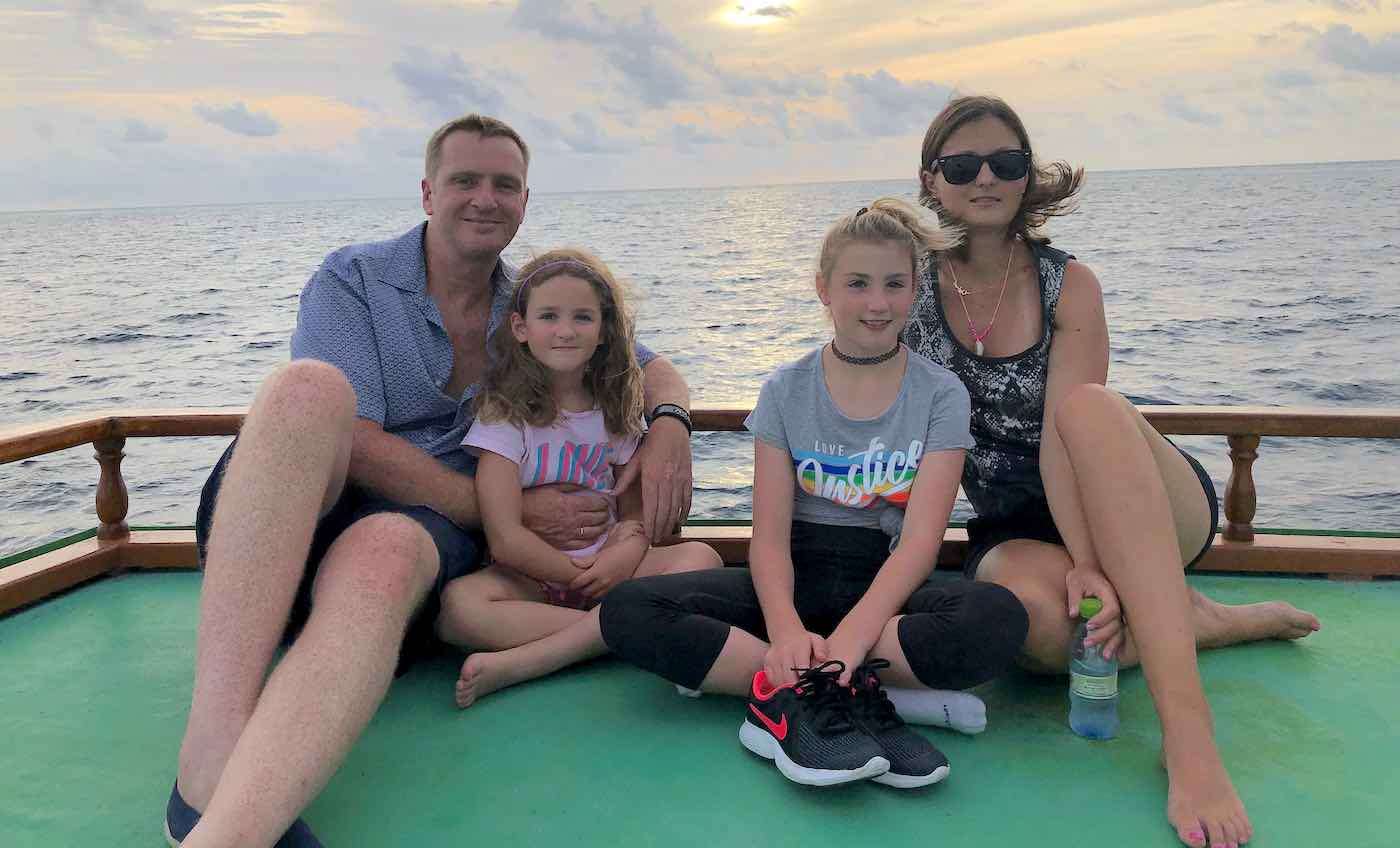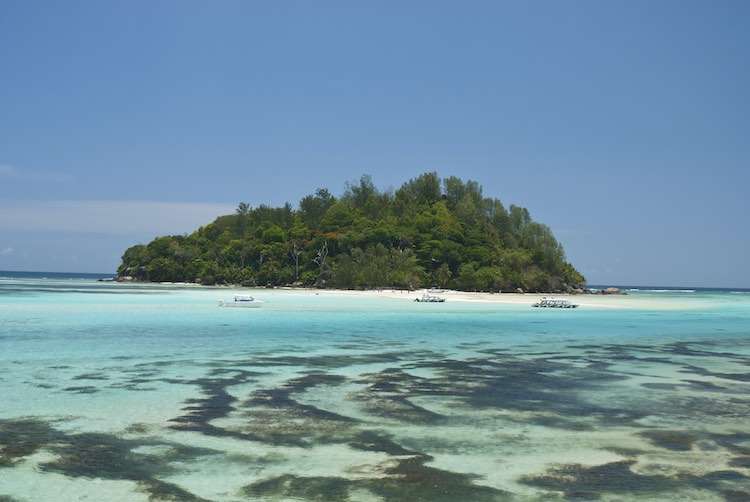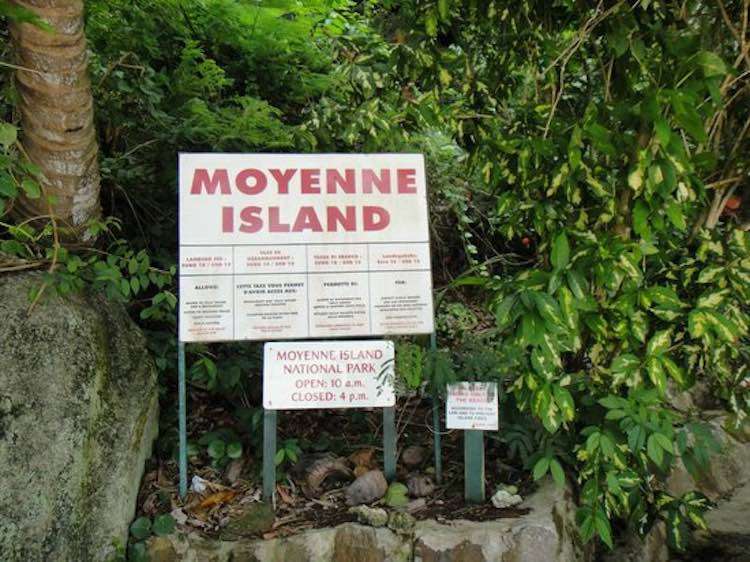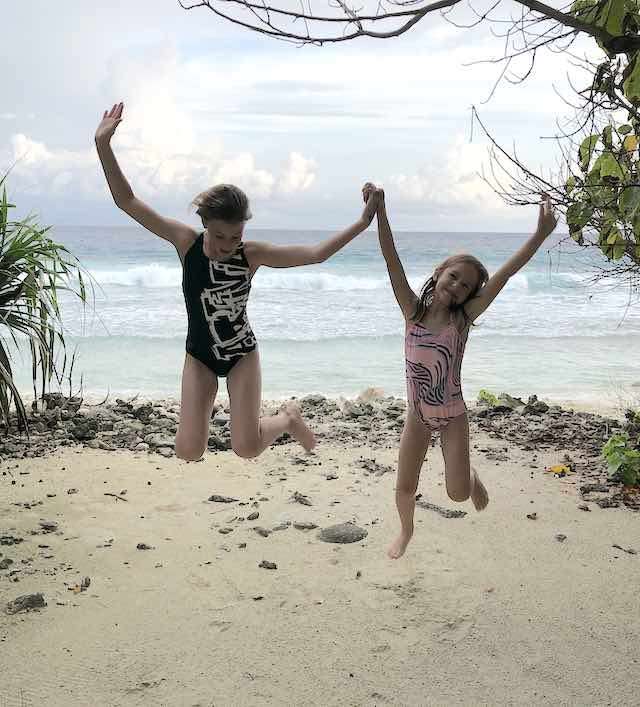Scientists 'Elated' After Finding Massive Coral Reef-The First Reef to Be Discovered in 120 Years
Australian scientists are delighted over their discovery of the massive reef which was found in the Great Barrier Reef earlier this week.

Rather than continue living a comfortable urban life, this British family has sold their London home in favor of launching the world's smallest nature reserve to save a nation's coral reef system.
Karolina and Barry Seath—along with their two young daughters—are preparing to move to an island in the Seychelles measuring just 1,300 feet long by 980 feet wide (400 by 300 meters).
They've launched a charity and teamed up with local biologists in a bid to revitalize the coral reefs in the smallest African country, which have been devastated by rising sea temperatures.
Their land-based coral farm will be only the second of its kind in the world, the other being on Australia's Great Barrier Reef, to specialize in regrowing coral to regenerate the reef.
47-year-old Barry, who is a former recruitment consultant and policeman, said: "We are just a normal husband, wife, and two kids, living the sort of life that most others do… but we felt the need to make a positive change for ourselves, our children, and the world we had largely taken for granted. So we have sold our home and parted company with most of our worldly possessions."
Over the course of several vacations to the Seychelles, the Seaths witnessed the gradual deterioration of the reefs as they snorkeled around the coastline.
"Every time we visited, we noticed the coral was getting worse and worse," said Barry. "All the tourists say the same thing. They love the beaches, but are really disappointed with the coral. They expect these lush coral reefs, but what they actually find is lots of coral rubble."
After more than 15 years running a London recruitment firm, Barry felt it was time to make a change and show his daughters an alternative way of eco-friendly living.
Barry then teamed up with experts at the Marine Conservation Society Seychelles in order to develop the facility. Building the farm is scheduled to take just three months with all the equipment, including tanks, chillers, filters, and pipework, costing £25,000.
Once complete, it will be the first large-scale, land-based coral farm in the Indian Ocean. The eco-warriors hope to use the facility to grow around 10,000 corals per year.

Once planted across local reefs, their diverse range of coral species is expected to maintain the biodiversity of the reefs and replenish the estimated 250,000 individual corals that have already been lost in the seas and reefs in the Seychelles archipelago.
"It's not going to change things overnight and will take a lot of work, but as we scale up operations, we expect to have a major and positive impact on the coral reefs in the area," said Barry.
In order to produce the coral at scale, the team plans to harness the latest techniques in "micro-fragmentation"—a recently-discovered coral farming technique which can dramatically increase growth rates far beyond what occurs in the wild.
Much like how skin cells grow over a cut, the process involves cutting an individual coral into small pieces to stimulate its growth rate. Ordinarily, it takes coral reefs between 25 to 75 years to reach sexual maturity. This means that it can take up to 6 years just to plant 600 coral—but micro-fragmenting helps them to grow 40 times faster than they do in the wild.
The corals can then be grown in temperature-controlled tanks for up to nine months before they are replanted on the local reefs. Whilst in the tanks, the corals will also be exposed to warmer temperatures, enabling them to adapt at a young age to the ever-increasing sea temperatures they will face when returned to their natural habitat.

The Seaths are already talking to UK university researchers about using their tanks to carry out groundbreaking research on new coral farming techniques. And, the Seaths' project could provide a rare chance for scientists to develop their laboratory research on a larger scale while also providing educational tours to local schoolchildren and tourists.
The farm will be located on Moyenne Island, a tiny property located just off the coast of Mahé, the Seychelles' largest island.
Moyenne was designated the world's smallest National Park in 2012 after its only inhabitant, British expat and former newspaper editor Brendon Grimshaw, passed away.
Grimshaw lived there for four decades after he bought the island for just £8,000 in 1962. Over the course of his life on the island, the conservationist planted thousands of trees and introduced giant tortoises which still roam the area to this day.
"The island has an amazing history. There are stories of hotel groups and rich individuals wanting to buy the island from Brendon," says Barry. "They told him he could just name his price, but he refused every time. He didn't want it to be developed.
"We hope to honor Brendon's legacy by using the island as the venue of our first coral farm."
Since the novel coronavirus outbreaks have also devastated the Seychelles' tourism-dependent economy, the family hopes that replenishing the coral reefs will help bring more visitors back to the East African nation in the future. Additionally, the team hopes the farm's success will help to launch more coral farms around the world.
Barry said: "Our long-term goal is to show everyone that—with just a relatively small investment—you can make a serious impact on the marine environment that will in turn boost the tourism industry. It should be a no-brainer."
The Seaths plan to divide the project responsibilities amongst themselves with Karolina coordinating social media for the project, while parenting their daughters. Meanwhile, Barry will work as a full-time volunteer on the farm as his daughters, 11-year-old Georgina and 7-year-old Josephine, take on the role of youth ambassadors alongside their studies at a new school on Mahé island, which is just a 15-minute boat trip from Moyenne.
The sisters are eager to start their new adventure, with Josephine saying, "I'll miss my friends, but I'm really looking forward to seeing lots of different animals and doing lots of snorkeling and helping my dad look after the coral."

Georgina wants to learn to dive so she can help with the project, adding: "I'm really excited to have this opportunity to move abroad and learn more about the world. I hope we can make a real difference."
The family is hoping that international flights will return to normal as coronavirus lockdowns are eased ahead of their planned departure in late August. Until then, they are busy establishing a nonprofit charity called Coral Reef Conservation UK—and they are already collecting donations from individuals and corporations.
The world's only other land-based coral farm, which sits on The Great Barrier Reef, relies on considerable funding from the Australian government. Although there was a similar £1.6 million-facility which was launched in the Bahamas, it was destroyed by a hurricane just weeks after completion.
The Seaths, however, have kept total costs to just £200,000 for the first two years, thanks to a generous offer from the island's current owner.
The family have enough money to support themselves for that time, but they will still need additional donations to fund the project's operating costs.
"Because we are working for free and since the landowner has agreed to pay the building costs, we are able to create this farm at a fraction of the cost you might expect," said Barry. "So it's a real opportunity to make a massive difference for a pretty small amount of money.
"We're very excited at the opportunity to make a positive impact and we hope that people will be able to support us."
If you are interested in contributing to the Seaths' labor of love, you can donate to their GoFundMe campaign or visit their website for more information.
(WATCH the Seaths' informational video below)
It's Not Hard To Sea That You Should Share This Inspiring Story With Your Friends On Social Media…
Be the first to comment